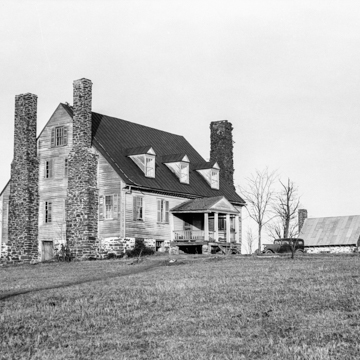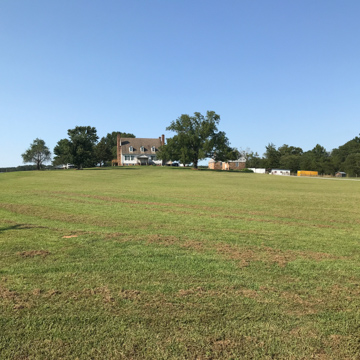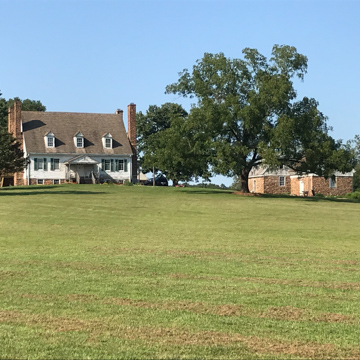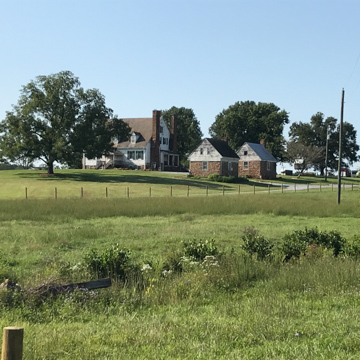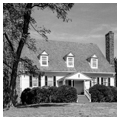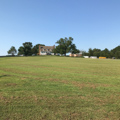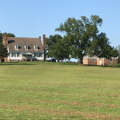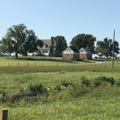White Hall is the attractive country cousin of Shady Grove (CP6). Built for the prominent Payne family, it is a less formal version in frame of its brick counterpart. Both houses are one-and-a-half stories over a raised basement, but White Hall's smaller windows are not symmetrically placed and the dormer spacing is also a little unsettling. Unlike the four brick chimneys at Shady Grove, which are comfortably nestled into the brick end gables, those at the frame White Hall have exceedingly long flues that are freestanding above the second shoulder of the steep roof. The low attic over the upper story at White Hall is expressed by a single window above the pair of second-story windows in each gable. White Hall also has two unusual coursed fieldstone slave quarters lined up to the right and in front of the house. The one-bay, one-and-a-half-story quarters were similar until the ceiling of the one nearest the road was raised in the twentieth century to accommodate an apartment.
You are here
White Hall
If SAH Archipedia has been useful to you, please consider supporting it.
SAH Archipedia tells the story of the United States through its buildings, landscapes, and cities. This freely available resource empowers the public with authoritative knowledge that deepens their understanding and appreciation of the built environment. But the Society of Architectural Historians, which created SAH Archipedia with University of Virginia Press, needs your support to maintain the high-caliber research, writing, photography, cartography, editing, design, and programming that make SAH Archipedia a trusted online resource available to all who value the history of place, heritage tourism, and learning.














